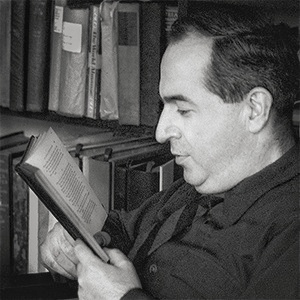A Quote by Lydia Millet
I worry about the very pernicious way we elevate and separate ourselves from other beasts, the way we rationalize our comfort and ease, our worship of the self, as healthy. It's enticing, but with a terrible taint of evil.
Related Quotes
In the conduct of our public worship where is the authority of Christ to be found? The truth is that today the Lord rarely controls a service, and the influence He exerts is very small. We sing of Him and preach about Him, but He must not interfere; we worship our way, and it must be right because we have always done it that way, as have the other churches in our group.
There's two kinds of evil that horror fiction always deals with. One kind is the sort of evil that comes from inside people, like in Dr. Jekyll and Mr. Hyde. The other kind of evil is predestined evil. It falls on you like a stroke of lightning. That's the scary stuff, but, in a way, it's the stuff you don't have to worry about. I gotta worry whether or not I'm getting cavities. I gotta worry about whether cigarettes are giving me cancer. Those are things I can change. Don't give me lightning out of a clear sky. If that hits me I just say, "That's probably the way God meant it to be."
Unless those of us who love our wives (and thus, our lives) make a conscious change to the way we speak of them, unless we begin choosing to elevate and praise our spouses instead of denigrate, we will be letting an incredibly corrosive, self-perpetuating societal meme destroy the very institution that defines our lives.
There's no question that in my lifetime, the contrast between what I called private affluence and public squalor has become very much greater. What do we worry about? We worry about our schools. We worry about our public recreational facilities. We worry about our law enforcement and our public housing. All of the things that bear upon our standard of living are in the public sector.
The sad thing is that, even though we know our lives aren't working in certain areas, we are still afraid to change. We are locked into our comfort zone, no matter how self-destructive it may be. Yet, the only way to get out of our comfort zone and to be free of our problems and limitations is to get uncomfortable.
Sometimes we may find that our partner continues to seek satisfaction in ways that we cannot live with. Nevertheless, when we decide to go our own way, we still have a choice as to how we separate. We can separate with bad feelings, blaming the other's faults and unacceptable behaviour, or we can separate with forgiveness, love and understanding.
Because we worship our way into sin, ultimately we need to worship our way out. When Christians commit sin, they do not cease worshiping. Rather, their worship is directed away from the Creator and toward created things. Repentance is the act of turning from sin and returning to God by trusting in Jesus Christ who is the perfect worshiper.
God's revelation... unmasks our illusions about ourselves. It exposes our pride, our individualism, our self-centeredness - in short, our sin. But worship also offers forgiveness, healing, transformation, motivation, and courage to work in the world for God's justice and peace - in short, salvation in its largest sense.
Being human, we would expel from our lives physical pain and mental anguish and assure ourselves of continual ease and comfort, but if we were to close the doors upon sorrow and distress, we might be excluding our greatest friends and benefactors. Suffering can make saints of people as they learn patience, long-suffering, and self-mastery.







































